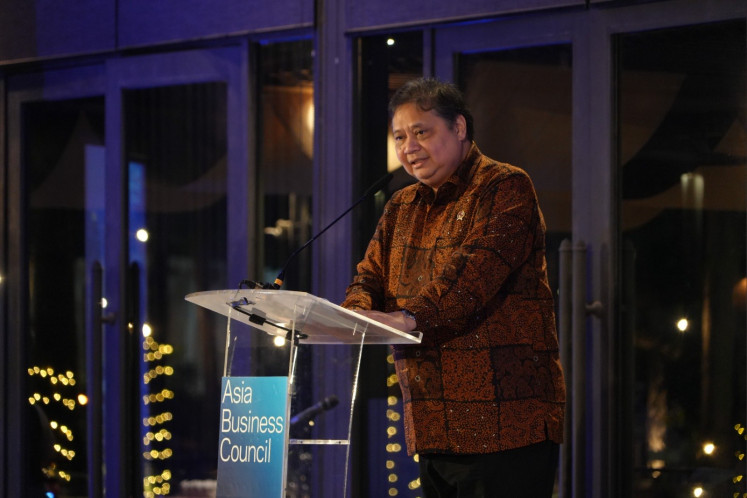he Asian economy is projected to remain resilient in the future, in spite of the global economic conditions that are challenged by current geopolitical turmoil.
The conflict in the Middle East is expected to affect the supply chains of several export and import commodities worldwide. This will also impact growth in emerging Asia, which is forecast to decline from around 5.6 percent last year to 5.2 percent in 2024.
Coordinating Minister of Economic Affairs Airlangga Hartarto, representing President Joko “Jokowi” Widodo, delivered a keynote speech on April 18 at the 2024 Spring Forum of the Asia Business Council, themed “Developing Asia: New Engines for Growth”.
In his speech, the coordinating minister emphasized that amid the still unstable economic conditions across the world, the Indonesian economy managed to grow 5 percent for the last eight consecutive quarters.
“We expect Indonesia’s economy to grow above 5 percent in 2024 and beyond, with inflation remaining under control. Investor confidence in Indonesia’s economic resilience remains strong,” Airlangga told the forum.
This confidence is reflected in the decisions of various international rating agencies to maintain Investment Grade level for Indonesia. Moody’s issued a Baa2 Stable Outlook rating for the country on April 16, while Fitch and JCR rated Indonesia as BBB (stable) in March 2024.
Indonesia’s external sector remains resilient, as indicated by its high foreign exchange reserves of US$140.4 billion at the end of last month. The country’s trade balance has also consistently booked a surplus for the last 46 months, reaching $870 million in February 2024.
After achieving solid economic recovery since the COVID-19 pandemic, the country will continue to move forward to achieves the Indonesia Gold 2045 vision.
This requires a transformative approach to economic development through enhancing knowledge and technology, innovation and economic productivity while adopting green economic policies, digital transformation, domestic economic integration and urban areas as centers of economic growth.

Indonesia is presently in the process of joining the Organisation for Economic Co-operation and Development (OECD) and has the potential to become the group’s third Asian member after Japan and South Korea.
The OECD accession process is expected to catalyze the government’s refinement of superior policies and regulations that are crucial for enhancing investment, productivity and technology-driven connectivity.
The government is also endeavoring to formulate better policies to promote strong economic growth that is inclusive and environmentally friendly.
Meanwhile, to maximize Indonesia’s growth potential and structural evolution, the government’s policy focus includes enhancing the role of manufacturing, improving competitiveness and productivity through the 2030 Digital Economic Development Strategy, and developing green and renewable energy economies toward achieving its net zero emissions goal.
Coordinating minister Airlangga also said the Asia Business Council’s spring forum was an appropriate platform to convince the region’s major business leaders that Indonesia remained committed to accelerating economic development by ensuring the continuity of its efforts in structural reforms and enhanced competitiveness.
“With the official announcement on the results of Indonesia’s elections, it ensures the continued alignment of the development agenda with the long-term planning documents for 2025-2045. The Indonesian government is also open to supporting any investment initiatives here, including [in] trade and human resource development,” he said.
Other VIPs attending the 2024 Spring Forum included Asia Business Council Chairman Takeshi Niinami, Asia Business Council Vice Chairman Arif P. Rachmat and United States Ambassador to Indonesia Sung Y. Kim. The forum also saw the participation of several CEOs from leading Asian companies, such as Alibaba, Chemical Thai, Indorama, Lotte, Mizuho Bank, Siam Cement, SK, Sony, Sumitomo, and Temasek. (rep/fsr)
This article was published in collaboration with Coordinating Ministry for Economic Affairs Republic of Indonesia















